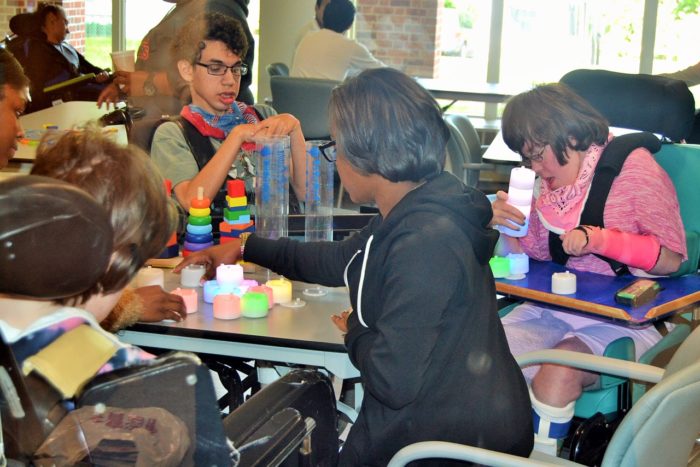One in four Americans has a disability, according to the Centers for Disease Control and Prevention. And while people with disabilities have a lot to offer the workforce, there can be obstacles to finding employment, for both eager employers and prospective employees.
Disability Solutions, a group within Ability Beyond, a non-profit with its New York headquarters in Chappaqua, seeks to help overcome these obstacles – and now, they’ve been awarded a $50,000 grant from the PwC (PricewaterhouseCoopers) foundation to help them do so.
Kristine Foss, managing director of Disability Solutions, said the money will fund efforts including a year-long series of webinars for “talent acquisition professionals and job seekers.”
“For 60 years we’ve been working with job seekers in New York and Connecticut and helping them find jobs,” Foss said of her parent organization. “We had employers reaching out to us, and from those conversations, Disability Solutions was formed to build a bridge between employers and job seekers.”
Job seekers with disabilities vary widely, Foss said. Some have developmental disabilities; others have physical disabilities due to aging or medical disabilities; still others are veterans with service disabilities.
Job seekers with disabilities may have questions as they try to find employment, Foss said. They may be unsure whether or not to disclose a disability to a potential employer; they may need guidance on “how to professionally follow up, make sure keywords are in their resumes, how to navigate the interview process” and even how to “dress for success,” Foss said.
“Some of it is great advice that anyone can benefit from,” Foss said. “But of course we target it to people with disabilities.” The first webinar for job seekers launched this past winter with several planned for the coming months. Just this past week, webinars to help employers prepare for a pay equity audit and to help jobseekers decide on disclosing if they have disability were launched. Six additional webinars are planned for May and June and additional information to register can be found at disabilitytalent.org/events-webinars.
Disability Solutions also offers information to talent acquisition professionals. Foss said that many companies really aim to benefit from hiring the many talented and hardworking people with disabilities, but may need help removing obstacles in their hiring processes. For example, an online application can have “unintentional barriers,” Foss said.

Foss’s group has helped large companies like Pepsico, American Express and Synchrony Financial hire thousands of people.
Shaileen Brighton-Ortiz, assistant director of programs and services in New York, works out of Ability Beyond in the recently opened Chappaqua Crossing location. About four years ago, Ability Beyond moved out of its former location on Kisco Avenue in Mount Kisco. “We’ve grown rapidly since then because we’ve been able to serve more people in the space we’re in now.”
“I oversee the day and work programs in New York,” she said. “Our New York office is located here in Chappaqua. We serve about 200 people in our work program and about 180 people in our day program.” Ability Beyond does fundraising, and receives funds from New York State and other government partners. “We do get grants but not enough of them,” she said.
It’s a continuum of services, Brighton-Ortiz explained. People with disabilities come into the program “mostly from transitional programs in the high schools.” They are then assessed and are either matched with an internship or a pre-vocational program, the aim of which is to hopefully prepare and transition each person to an internship if possible.
“Once they acquire skills that will help them be successful in competitive employment,” these individuals are then graduated, referred to a state agency and then work with an employment specialist (often called a job coach),” Brighton-Ortiz said.
The day program has a site-based component and another component that is really “without walls,” Brighton-Ortiz explained, but the location in Chappaqua operates as a “hub.” From there, people may go out to internships, physical, recreational, or cultural activities. “There’s a blend of programming,” she said. “We don’t really believe in an adult day program. People are able to graduate when they’ve accomplished their goals. We partner with Disability Solutions and other agencies. It’s like graduating from high school to college – they have options.” Currently, about 40 percent of the people in Ability Beyond’s program are in the site-based program and 60 percent in the “without walls” component.
“I’m really excited to spread the word about this innovated and talented group of job seekers nationally,” Foss said. “Companies are looking for talent.”
